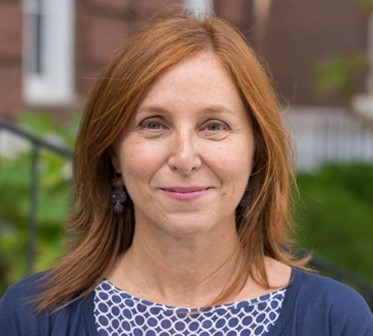
| Event Details |
|---|
|
Thursday, April 16, 2015 Talk:
4:00 p.m. - 5:00 p.m., 115 Avery Hall
Reception:
3:30 p.m. - 4:00 p.m., 348 Avery Hall
|
Francesca Rossi, Ph.D - Distinguished Speaker
Professor, University of Padova, ItalyAbstract
Preferences are ubiquitous in our everyday life. We use them to take all our decisions, either in isolation or together with others. They change over time, and are affected by our relationship with friends. We sometimes describe them explicitly, but, most often, we show them implicitly via our actions (like clicks, follows, tweets, blogs, choices). Being able to faithfully model them and efficiently reason with them is essential in every intelligent environment. Several formalisms exist to handle preferences of various kinds: qualitative, quantitative, conditional, etc. However, they usually assume preferences to be certain, and do not provide help for describing and reasoning with uncertain preferences. Uncertainty may be present in a single agent setting, where an individual is not sure about its preferences or some noise is present, and also in a multi-agent setting, where several individuals may have conflicting preferences and uncertainty may be used to reconcile them. Probabilistic CP-nets (PCP-nets) are a formalism to model conditional qualitative preferences with probabilistic uncertainty. Under reasonable restrictions on the topology of their dependency graph, it is computationally easy to perform various tasks in PCP-nets. Thus, they provide an efficient tool to model and reason with preferences. In this talk, I will describe PCP-nets and how to respond to optimality and dominance queries over them. I will then advocate for the need of a logical language to model them, and hint at their possible use in various scenarios. Finally, I will compare them to other frameworks, and will discuss preference elicitation/learning issues.
Speaker Bio
Francesca Rossi is a professor of computer science at the University of Padova, Italy. She is currently on sabbatical at Harvard University on a fellowship of the Radcliffe Institute for Advanced Study. Her research interests include: constraint reasoning, preferences, multi-agent systems, computational social choice, and artificial intelligence. She has been president of the international association for constraint programming (ACP), and is now the president of IJCAI. She has been program chair of CP 2003 and of IJCAI 2013. She is on the editorial board of Constraints, Artificial Intelligence, AMAI and KAIS, and Associate Editor in Chief of JAIR. She has published over 160 articles in international journals, proceedings of international conferences or workshops, and as book chapters. She has co-authored a book, edited 16 volumes of conference proceedings, collections of contributions, and special issue of international journals, and has co-edited the Handbook of Constraint Programming.